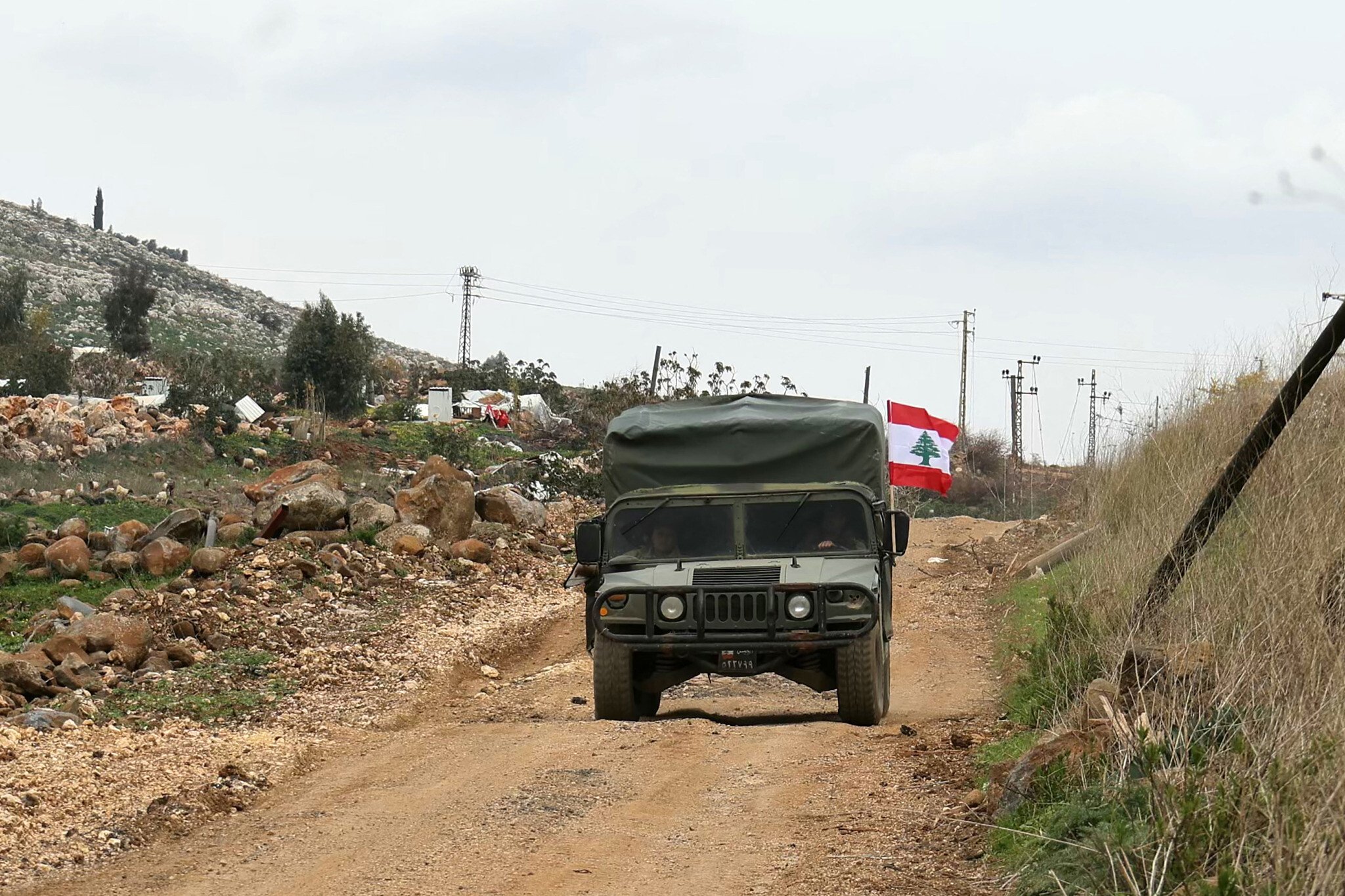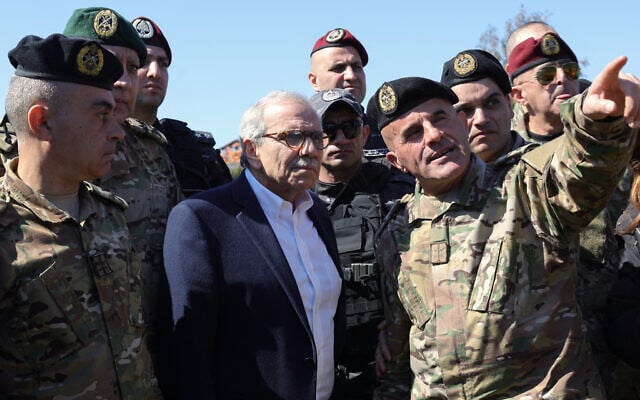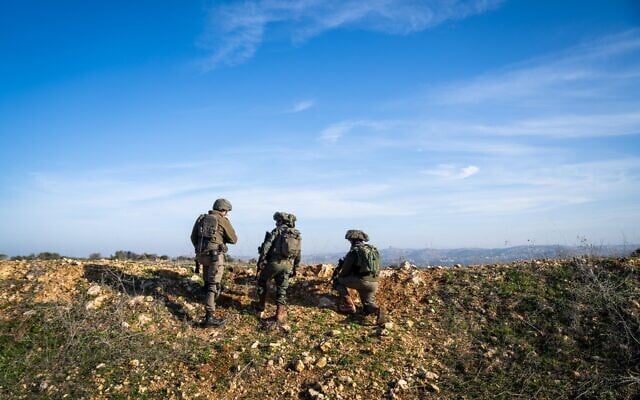



Lebanon’s army has dismantled most of Hezbollah’s posts and weapons stockpile in the country’s south, with the help of Israeli intelligence passed along by the US, and Israeli and American officials are said to be pleasantly surprised by the progress, The Wall Street Journal reported Wednesday.
But the report, which also cited Arab officials, noted that the army still faces the challenge of completing the job in the south — in accordance with last year’s ceasefire agreement — and implementing its plan to disarm the Iran-backed terror group and assert control over the entire country.
The November 2024 ceasefire ended more than a year of fighting, including some two months of open war, between Israel and Hezbollah. The fighting began on October 8, 2023, when the Iran-backed terror group started attacking Israel daily with missiles and drones in support of Hamas.
Lebanese Prime Minister Nawaf Salam said in an interview with the US outlet that his government has achieved 80 percent of its objectives in disarming militias in the south.
“All over the Lebanese territory, the state should have a monopoly on arms,” Salam said, reportedly banging his fists on a table. “We don’t want to put the country onto a civil-war track, but believe me, this is not going to affect our commitment to the need to extend and consolidate the authority of the state.”
Israeli intelligence, delivered to the Lebanese via the US, helped locate remaining Hezbollah caches and posts in the south, unidentified senior Arab officials told the newspaper.
Some of the weapons were destroyed, others were kept for the army’s own use.
Senior Lebanese officials said Hezbollah has also been forced to give up control of Beirut Airport. That has impacted Hezbollah’s ability to bring in funds, according to the report.
“We do see a lot of areas where the Lebanese army is way more effective than expected,” an unidentified IDF official told the Journal. “The IDF is generally pleased by this trend and we are expecting it to continue.”
Though the ceasefire agreement focuses on dismantling Hezbollah south of the Litani River, the report said that Salam and the US are pushing for the same disarmament of the group across the rest of the country.
However, the group has insisted it needs to retain some arms, with Hezbollah lawmaker Ibrahim Mousawi telling the Journal that “Hezbollah arms that continue to exist in certain parts are points of strength of Lebanon.”
Senior officials in Hezbollah and the government are concerned about the possibility of internal Lebanese clashes, though Salam said he is determined to see the disarmament through.
“We don’t want to put the country onto a civil-war track, but believe me, this is not going to affect our commitment to the need to extend and consolidate the authority of the state,” he said.
During the ongoing ceasefire in Lebanon, the IDF has continued to strike Hezbollah operatives and sites it says violate the understandings between Israel and Lebanon. More than 150 Hezbollah operatives have been killed since the start of the ceasefire.
Under the terms of the deal, Israel was obligated to withdraw its forces from southern Lebanon under the ceasefire. It pulled out from all but five strategic posts located several hundred meters inside Lebanon, which it says are necessary to defend Israeli communities.


